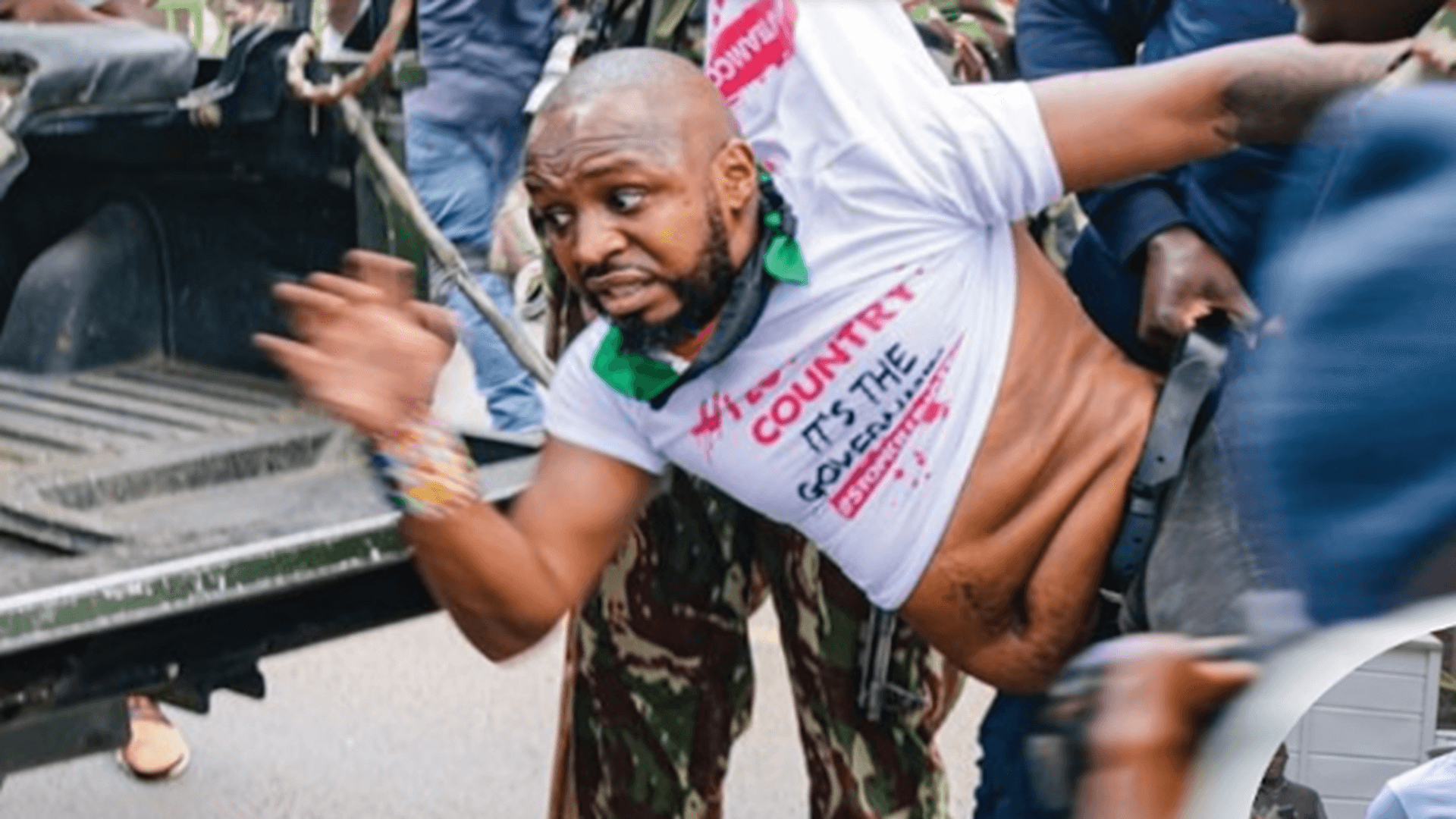Kenyan Activist Boniface Mwangi Released After Alleged Torture in Tanzania
Prominent Kenyan activist Boniface Mwangi was released from Tanzanian custody on Thursday, May 22nd 2025, after a three-day detention that sparked widespread protests and diplomatic tensions between Kenya and Tanzania. Mwangi, known for his outspoken activism against corruption and police brutality, alleged he endured severe torture during his detention, describing the ordeal as "four very dark days." The activist was deported by road and abandoned near the Kenyan border in Ukunda, Kwale County, before being transported to Mombasa and later flown to Nairobi for medical treatment.
Mwangi was arrested in Dar es Salaam on Monday, May 19, 2025, alongside Ugandan journalist Agather Atuhaire, while attending the treason trial of Tanzanian opposition leader Tundu Lissu. The arrests followed a pattern of detentions targeting Kenyan activists, including former Justice Minister Martha Karua and former Chief Justice Willy Mutunga, who were also denied entry or deported from Tanzania over the weekend. Mwangi claimed that he and Atuhaire were subjected to severe mistreatment by Tanzanian authorities, stating, "I have been tortured very badly, I can barely walk, but I am very concerned about Agather because we were tortured together and they did very horrible things to us."
On Sunday night, Mwangi reported a disturbing incident at his hotel room in Dar es Salaam’s Serena Hotel, where armed men claiming to be police officers demanded entry. Fearing for his life, he refused to open the door, tweeting, “My life is in danger… They will have to break the door to remove me here. I’m not going to open it.” The men eventually left, but Mwangi was detained shortly afterward, and his whereabouts remained unknown for days, prompting alarm among his family, human rights groups, and supporters.
The detention of Mwangi and Atuhaire ignited protests in Nairobi, with activists and Mwangi’s wife, Hellen Njeri Mwangi, camping outside the Tanzanian High Commission to demand clarity on his whereabouts. Njeri publicly pleaded for proof of her husband’s life, accusing both Kenyan and Tanzanian authorities of withholding information. “Your silence thus far has been deafening,” she wrote in an open letter to Kenya’s Ministry of Foreign Affairs, urging them to prioritize her husband’s case.
The Kenyan government, through Prime Cabinet Secretary and Foreign Affairs Minister Musalia Mudavadi, formally protested Tanzania’s actions, citing a violation of the Vienna Convention on Consular Relations (1963), which mandates consular access to detained nationals. Kenya’s Foreign Ministry expressed concern over Mwangi’s health and the lack of transparency, stating, “Despite several requests, officials of the Government of Kenya have been denied consular access and information regarding Mr Mwangi.” The ministry pressed Tanzania to either grant access or release him immediately. Amnesty International and the East African Law Society (EALS) also condemned Tanzania’s actions, with the EALS labeling the detentions a “blatant violation” of the East African Community (EAC) treaty, which guarantees free movement among member states. The EALS announced plans to challenge the deportations at the East African Court of Justice, citing a precedent that arbitrary restrictions on movement violate EAC law.
On Thursday morning, Mwangi was released and dropped near the Horohoro border post, from where he was transported to Lungalunga on the Kenyan side. Human rights activist Khelef Khalifa facilitated his transfer to Mombasa, where he was visibly weak and required a wheelchair to board a flight to Nairobi for medical attention. The Kenya National Commission on Human Rights (KNCHR) confirmed receiving Mwangi in Kwale County, noting he was “in high spirits” despite his condition. Mwangi’s family confirmed he was tortured during his detention, a claim that has yet to be addressed by Tanzanian authorities, who have remained silent on the matter. The activist expressed gratitude to supporters on X, stating, “Words can’t express my gratitude to all of you for raising your voices to get me released.” However, concerns persist for Atuhaire, whose whereabouts remain unknown, with Mwangi urging authorities to ensure her safety.
The incident occurred amid heightened tensions in Tanzania ahead of its October 2025 elections. President Samia Suluhu Hassan, facing re-election, warned foreign activists against “interfering” in Tanzania’s affairs, a statement made hours after Mwangi’s detention. This followed the deportation of several Kenyan activists, including Karua, who were barred from attending Lissu’s trial. Rights groups have raised alarms over an apparent crackdown on dissent, with Tanzania also restricting access to X after cyberattacks on government accounts, further fueling concerns about suppression of free speech.
Mwangi’s release has been met with relief but has also reignited debates about human rights and regional cooperation within the EAC. The incident has strained Kenya-Tanzania relations, with activists and legal bodies calling for accountability and adherence to international norms. As Mwangi seeks medical treatment, his wife urged supporters to allow him time to recover before sharing further details of his ordeal. Meanwhile, the search for Atuhaire continues, with human rights groups pressing for her immediate release. The case underscores ongoing challenges to freedom of movement and expression in East Africa, raising questions about the balance between national sovereignty and regional integration. As protests subside, the focus now shifts to ensuring justice for those affected and preventing future violations.


